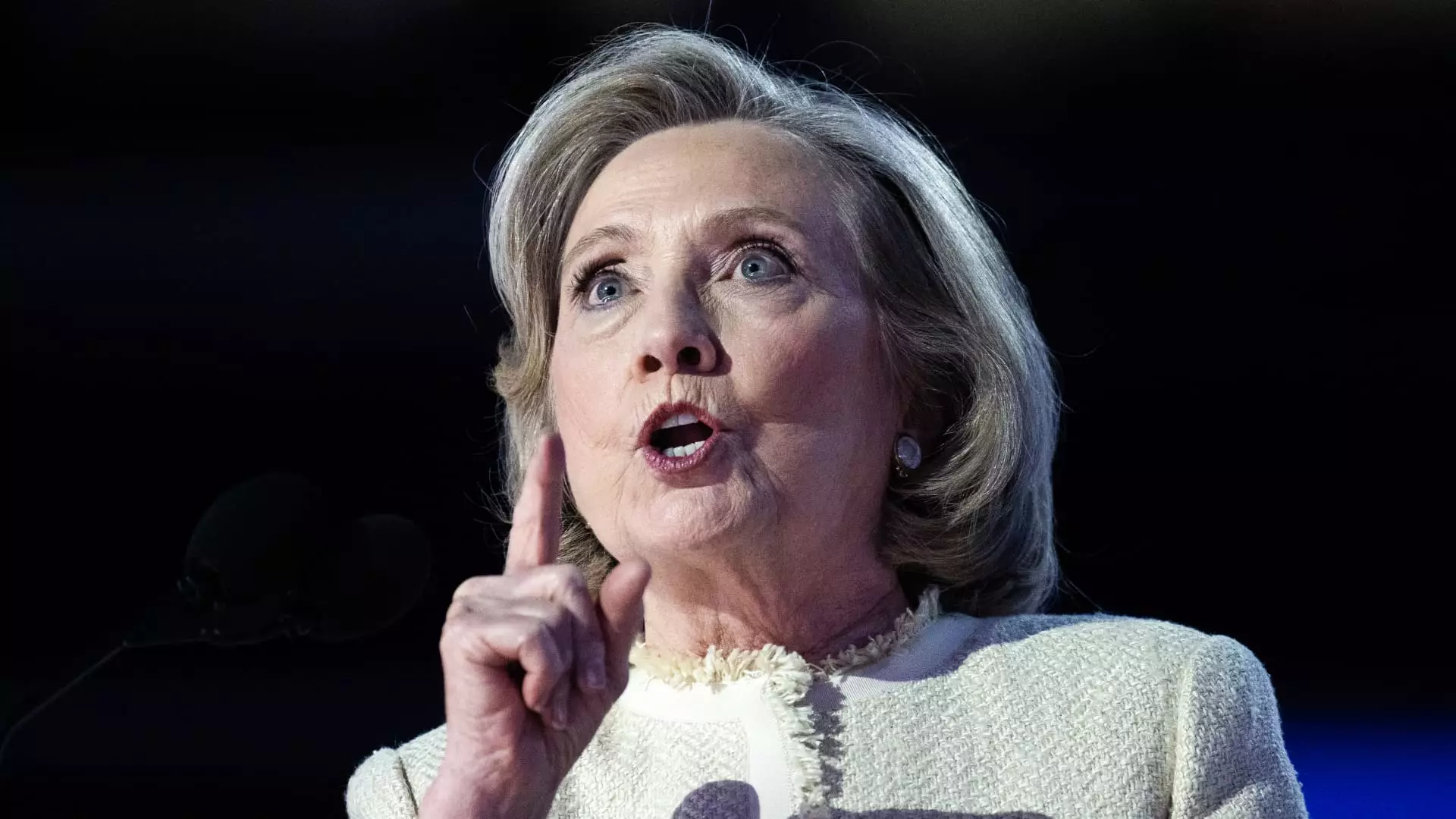In an astonishing display of negligence, President Donald Trump’s administration recently found itself embroiled in a scandal that highlights a severe lapse in judgment and responsibility. A seemingly innocuous chat on the Signal messaging app devolved into a national security headache when U.S. military plans were accidentally leaked to a journalist who had been unwittingly integrated into a thread meant for top officials. This incident exposes not only the recklessness of the administration but also raises questions about the competence of those entrusted with our nation’s security. Hillary Clinton, in her recent op-ed for The New York Times, aptly described this scenario as more than just hypocritical—it epitomizes sheer stupidity.
The implications of this leak should not be brushed aside as mere political theater. When classified information is mishandled, it endangers lives and compromises operations that demand utmost secrecy and precision. Clinton’s assertion that this situation is uniquely dangerous is a sentiment that resonates profoundly in a climate where national security has never been more critical. The gravity of the matter is underscored by her warning that putting military plans on a commercial messaging platform is an act far worse than betrayal—it is an affront to the principles of governance that men and women have sacrificed so much to uphold.
Hypocrisy vs. Reality: The Administration’s Double Standard
The Trump administration has not only transformed the discourse on national security but has done so under a veil of surprising hypocrisy. For years, his allies have condemned Clinton for her use of a private email server, branding it reckless and imperiling to the nation’s safety. Yet, when members of Trump’s inner circle engage in similarly reckless behaviors—sharing sensitive military strategies in a casual messaging group—there is a noticeable absence of outrage. This double standard poses a fundamental question: Why is it acceptable for Trump’s staff to jeopardize national security, while Clinton is continuously vilified for far less egregious conduct?
White House spokesman Harrison Field’s witty retort about “glass houses” serves only to highlight the inconsistency of the administration’s stance on security protocols. It’s crucial to point out that the gravity of their missteps goes beyond mere political rivalries; it directly jeopardizes the lives of service members and reinforces a worrying culture of impunity where accountability is selectively applied.
The Broader Implications of Carelessness
As the ramifications of this leak begin to ripple through political circles, the discourse must shift from individual blame to a broader examination of an administration perpetually poised to make self-inflicted wounds. The crumbling facade of Donald Trump’s “America First” philosophy is becoming glaringly evident. His disappointing disregard for federal record retention laws, the dismantling of safeguards around nuclear security, and the shuttering of pandemic-prevention initiatives illustrate a trajectory that threatens not only our national security but also the integrity of our international standing.
In her piece, Clinton emphasized the collective alarms being sounded over the current administration’s pattern of behaviors. This isn’t an isolated incident but rather part of a troubling trend in which officials are more engaged in “performative fights over wokeness” than in safeguarding the country’s future. Such distractions not only divert attention from pressing security issues but also create a milieu where critical decisions can be made recklessly, endangering both personnel and strategy.
A Call for Accountability
The current state of affairs demands accountability. When leaders in the White House, such as the national security adviser Mike Waltz and defense secretary Pete Hegseth, perpetuate gross negligence in their duties, it is the responsibility of Congress to hold them accountable. Senator Mark Kelly’s comments about Hegseth’s qualifications aptly capture a growing frustration among lawmakers who prioritize national security above partisan politics. The weight of these decisions cannot be underestimated, and if those at the helm fail to take the necessary precautions, they should face severe repercussions.
Failure to act decisively in holding poorly performing officials accountable sends a chilling signal about our vigilance in protecting the nation. The recent incidents in the Trump administration should be a glaring warning sign—a moment for reflection on the kind of governance that America receives, and requires, in an ever-dynamic global landscape. If we are to maintain the trust and safety of our armed forces and citizens, we must demand more than flippant reassurances from those in power.

